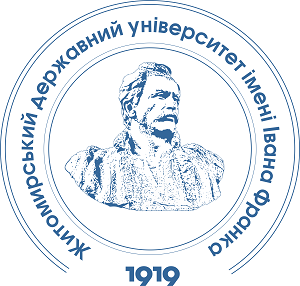PRIORITY TASKS OF INCLUSIVE EDUCATION IN SECONDARY SCHOOLS OF UKRAINE
DOI:
https://doi.org/10.32782/psy-2023-1-7Keywords:
inclusive education, team of psychological and pedagogical support, inclusive resource center, universal design in education, toleranceAbstract
The article discusses the concept of «inclusive education» in Ukraine, as well as its value, importance and the challenges facing professionals. On September 5, 2017, the Ministry of Education and Science of Ukraine adopted a new Law of Ukraine "On Education", according to which children with special educational needs have the right to receive education in all educational institutions. Every child has the right to education and inclusion in the children's community. This contributes to the child's development, which will help him or her in choosing a profession and self-realization in the future. Today, the number of children in need of help and support is growing, which points to the importance of training specialists who can provide proper, professional assistance not only to children but also to their parents. It is also very important to conduct educational work in society. The purpose of which is to tell about what inclusive education is, what its main goal and objectives are. Let's highlight the challenges facing a number of professionals who implement and develop inclusive education in Ukraine. Among the list of tasks, it is difficult to single out the most important and priority ones, because each is valuable. Often people avoid interacting with children and adults with special needs because they do not know how to behave and are afraid of saying the wrong thing. In addition, there are many myths and stereotypes in our society that need to be debunked and explained. In the educational process, as in any other field, a person is a value. That is why it is so important to approach everyone individually, take into account their strengths and help develop those that require additional attention. This will help increase the child's self-esteem and self-worth. Inclusive education has faced and still faces many obstacles that children and parents overcome every day with the help of a team of professionals working for the future of every child.
References
Порошенко М. А. Інклюзивна освіта: навчальний посібник. Київ: ТОВ «Агенство Україна», 2019. 300 с.
Міністерство освіти і науки України : вебсайт. Інклюзивне навчання: https://mon.gov.ua/ua/tag/inklyuzivnenavchannya.
Гладуш В. А. Інклюзивна освіта в Україні: успіхи, проблеми, перспективи. Електронна бібліотека НАПН України. 2018. URL: https://lib.iitta.gov.ua/id/eprint/729855.
Фроленкова Л. Формування толерантного ставлення до дітей з особливими освітніми потребами в умовах інклюзивного навчання. Освіта осіб з особливими потребами: шляхи розбудови. 01.13.2017. С. 433–438.
Конституція України: Закон України про освіту від 05.09.2017 №2145 – VIII URL: https://zakon.rada.gov.ua/laws/show/2145-19#Text.
Верховна Рада України. Законодавство України. Наказ про затвердження примірного положення про команду психолого-педагогічного супроводу дитини з особливими освітніми потребами в закладі загальної середньої та дошкільної освіти. № 609. 08.06.2018 . URL: https://zakon.rada.gov.ua/rada/show/v0609729-18#n11.
Звєкова В. Актуальні проблеми профорієнтаційної роботи в шкільному просторі з дітьми з особливими освітніми потребами. Педагогічні науки: теорія, історія, інноваційні технології. Суми. 2020. № 8(102). С. 3–15. URL: http://repository.sspu.edu.ua/handle/123456789/10413.
Клочкова А. Проблема реалізації профорієнтаційної роботи з дітьми з особливими освітніми потребами в закладі загальної середньої освіти. Вересень. 2023. № 1(96). С. 180–193.






